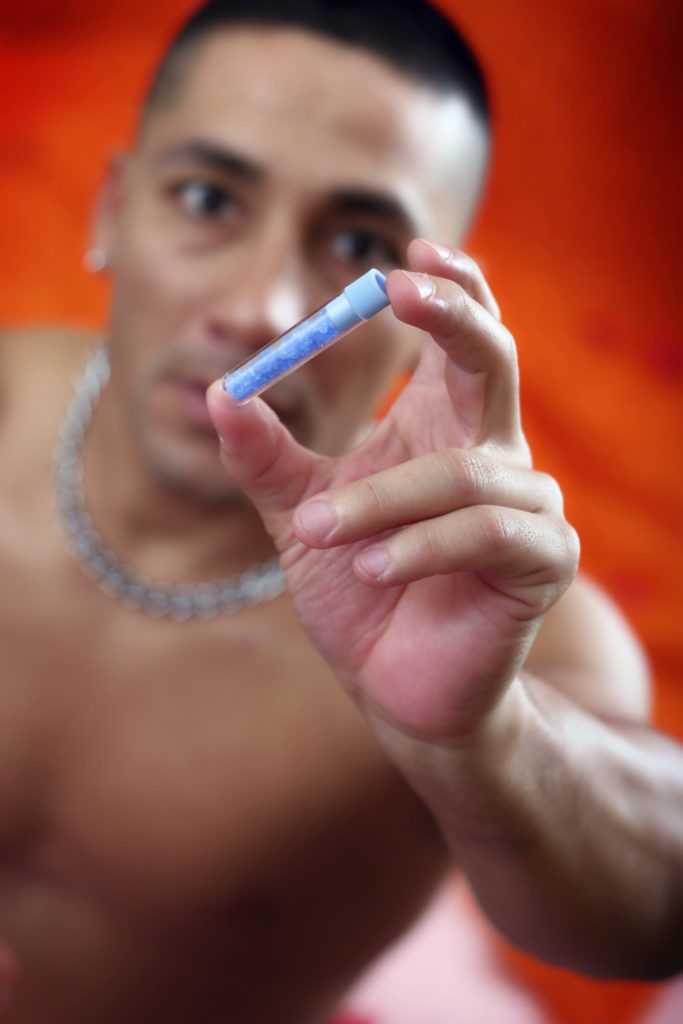Doc Talk: Identifying and Treating Alcoholism By: Dr. Jason Powers Title: Chief Medical Officer, The Right Step and Spirit Lodge Info: Among the first doctors certified by the American Board of Addiction Medicine (ABAM). H Magazine Texas’ “Top Doc” in Addiction Medicine, 2007-2009. 2008 winner of Sierra Tucson’s Gratitude for Giving, Compassion Award. Dr. Powers, The Right Step Chief Medical Officer, has worked in addiction recovery for over eight years and has helped The Right Step’s inpatient detoxification program reach out to, and reform, hundreds of addicts over the years. We asked him to share some information on detoxification for addiction victims and their loved ones.
Addiction Confusion
Addiction is a disease. The substance that imprisons a person is merely a symptom of the larger disease that we call addiction. Alcoholism is different than addiction to controlled and illicit substances, only in perspective. Even the big book of Alcoholics Anonymous freely offers that alcohol is but a symptom and not the problem. There is also a difference between “abuse”—when problems arise as the result of drinking and/or using other mind-altering substances—and “dependency,” which is a physical, mental, spiritual, and emotional dysfunctional process. It is commonly known as “addiction” although the medical establishment calls it “dependency.” This is confusing to most people, especially since someone can become physically dependent on substances without becoming addicted.
Identifying and Helping an Alcoholic
As with any addiction, Dr. Powers says the primary ways to identify someone with a problem are to observe their habits. Significant lifestyle changes— such as new jobs, isolation, elaborate excuse making, developing a new social circle, less attention paid to appearance and hygiene, or a rearrangement of activities to allow for better access to alcohol and other mind-altering substances—are all strong signs of addiction. “It is always okay to follow your gut if you’re truly concerned,” Dr. Powers urges, “and just let your loved know you are concerned.” Dr. Powers also encourages addicts’ loved ones to get help for themselves as well. “You can’t control addiction in someone else or cure it [yourself],” he says. However, visiting with a therapist or counselor can help prepare you for the difficult road ahead and can provide resources to help the addict, as well. The most common obstacle that stands between victims and recovery is “understanding the disease of addiction,” and visiting with a counselor will develop that understanding.
Alcoholism Treatment at The Right Step
Alcoholism is a progressive and usually fatal disease, and Dr. Powers cautions against allowing it to wreak havoc on someone. To do so risks heart, digestive, and neurological problems, motor vehicle or other accidents, and even death by liver disease or failure. At The Right Step, our medical team, including Dr. Powers, provides supervised alcohol detoxification, (learn why medical supervision is necessary for alcohol detox here), leading directly into our inpatient or outpatient counseling and therapy program. “What sets [The Right Step] apart from other programs is innovation and forward-thinking. We use traditional models, but we’re open to incorporating good science when it’s effective. We are always looking for relevant ways to best treat our patients in order to fulfill our mission: to prevent relapses; help people flourish; save lives; and heal communities. Detoxification on its own is simply not enough; at The Right Step we give patients the coping tools they need to build new lives, free of dependence on alcohol or other substances. It’s about helping patients lead fulfilling lives after recovery.” Alcoholism Treatment at The Right Step Alcoholism is a progressive and usually fatal disease, and Dr. Powers cautions against allowing it to wreak havoc on someone. To do so risks heart, digestive, and neurological problems, motor vehicle or other accidents, and even death by liver disease or failure. At The Right Step, our medical team, including Dr. Powers, provides supervised alcohol detoxification, (learn why medical supervision is necessary for alcohol detox here, leading directly into our inpatient or outpatient counseling and therapy program. “What sets [The Right Step] apart from other programs is innovation and forward-thinking. We use traditional models, but we’re open to adaptation” as science advances, Dr. Powers affirms. Detoxification on its own is simply not enough; at The Right Step we give patients the coping tools they need to build new lives, free of dependence on alcohol or other substances. “It’s not just about no relapses,” explains Dr. Powers. “It’s about helping patients lead fulfilling lives after recovery.” Remember that helping someone overcome addiction is a gift born of compassion. For more information on admission to The Right Step, please click here.






